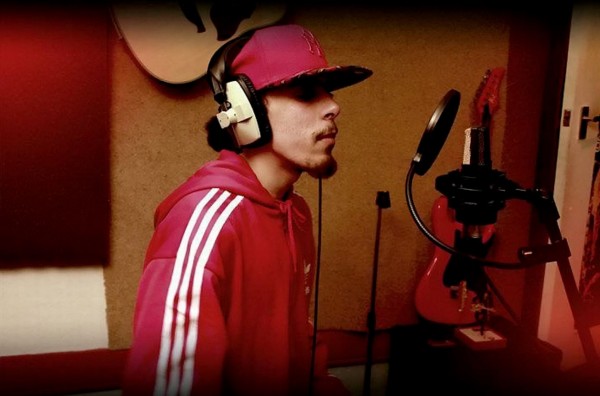AUS: London rapper Abdel-Majed Abdel Bary has been identified as the leading suspect in the beheading of US journalist James Foley, according to reports. Abdel-Majed Abdel Bary was just six years old when his father was arrested and taken away from their London home. At such a tender age, he could not have known the seriousness of the accusations his father would soon face: that he was one of Osama Bin Laden’s lieutenants in Britain, and had played a role in the bombings of two US embassies in east Africa. Still, the little boy experienced feelings of anger and loss which, years later and as an up-and-coming rapper, he recalled in lyrics in one of his songs, The Beginning.”Give me the pride and the honour like my father. I swear the day they came and took my dad, I could have killed a cop or two and I wouldn’t look back,” raps Bary, who uses the names L Jinny or Lyricist Jinn. “Imagine back then I was only six, just picture what I’d do now with a loaded stick. Like boom bang fine, I’d be wishing you were dead. Violate my brothers and I’m filling you with lead.” Now, Bary is at the centre of an international manhunt, suspected of being the masked Islamic State militant who carried out the horrific beheading of American journalist James Foley.
The 23-year-old, who is also known as Jihadi John, is believed to have travelled to Syria last year from his home in Maida Vale in west London, where he lived with his mother Ragaa and his five siblings. Their home is owned by Westminster Council, and on the open market would be worth £1 million ($1.8 million), according to British media reports. His father, Egyptian-born refugee Adel Abdul Bary, is in custody in New York, awaiting trial over his alleged role in the embassy bombings in Kenya and Tanzania in 1998. He was extradited from Britain to the US in 2011 after an eight-year legal battle, and faces life in prison if convicted. He had been granted political asylum in Britain in 1991 after fleeing Egypt. The younger Bary came to international attention earlier this year when he posted on Twitter a photograph of himself holding up a severed head. “Chillin’ with my homie or what’s left of him,” he wrote on his Twitter account, which has since been deactivated.
Bary is one of the British jihadists referred to by former hostages as the Beatles, because of their British accents. The two others were called “George” and “Ringo”. The two other Britons suspected of involvement are Aine Davis, a former drug dealer who converted to Islam, and Razul Islam, who is believed to have joined the terrorist group that murdered Foley. Before travelling to Syria, Bary achieved limited success as a rapper in Britain, where his singles played on BBC Radio 1 in 2012. In early songs, he appears to make reference to violence and drug use, and talks about the threat of his family being deported to Egypt. He also raps about the struggles of his life, again referring to his absent father.
“Now they want to send my family back to Egypt. Already feeling sea sick,” he raps. “On top of that the pops is doing life without remand. I’ve got to keep my calm… It’s hard to focus on the future with a damaged past. And still I try to count my blessings and I thank the Lord.” Friends claimed Bary grew increasingly radical and violent after mixing with people linked to radical Islamist preacher Anjem Choudary in Britain. In the middle of last year, Bary announced that he was turning his back on music as “I have left everything for the sake of Allah”. He changed his Twitter name to Soldier of Allah and posted a number of photographs online of himself posing with guns, while he also praised al-Qaeda founder Bin Laden. He also wrote: “Oh Allah, grant us martyrdom”. Recordings of his songs will prove vital to the investigating team, with experts using voice recognition technology to match his voice with that of the man who decapitated Foley. MORE

